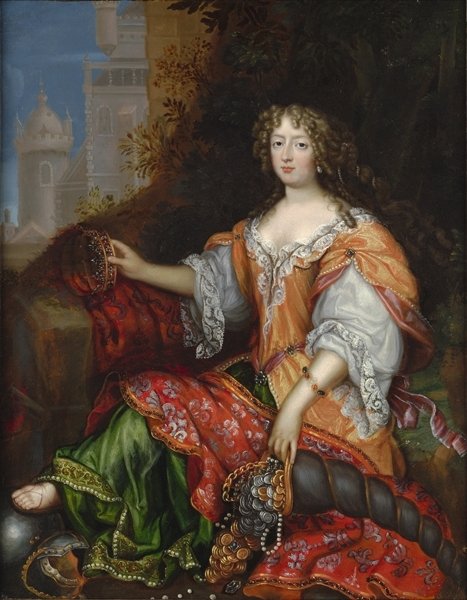
Sisters of the Burning Branch Presents...
Goddess Fortuna

by E. Sylvia, Priestess, Sisters of the Burning Branch
In contemporary practice, when we think about the Goddess Fortuna, it is usually for luck in wealth, money and financial matters.
In ancient times, though, the Goddess Fortuna was believed to govern many facets or aspects of luck, often expressed along with Her name. Here are a few examples:
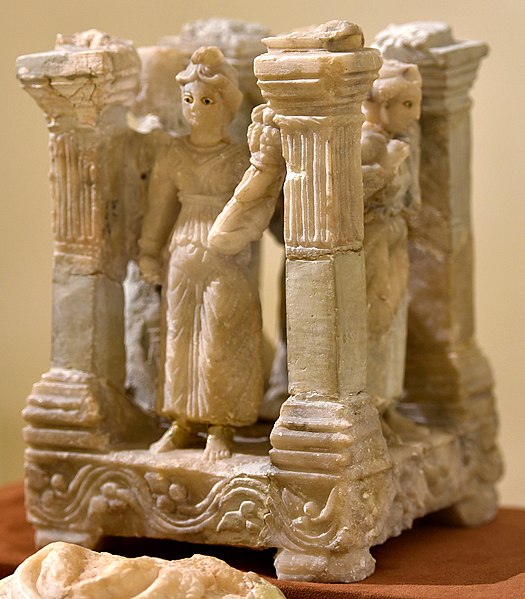
Isis Fortuna, a syncretization of two Goddesses
Fors Fortuna, the bringer of good luck, perhaps Fortuna's most familiar face in the present day. In this guise, She brought about tremendous, joyful luck and unexpected beneficial transformation.
Fortuna Huiusque Diei, luck of the present day
Fortuna Muliebris for women's luck
Fortuna Privata for personal luck
Fortuna Primigenia luck for new mothers and newborn children
Fortuna Redux for luck of returning home safely
Fortuna Venus, another syncretization of two Goddesses
Goddess Fortuna has seen and experienced far more than material wealth.
The
ancient Goddess Fortuna could be appealed to by anyone, regardless of
age, social standing, ethnicity or nationality, for luck in practically
anything.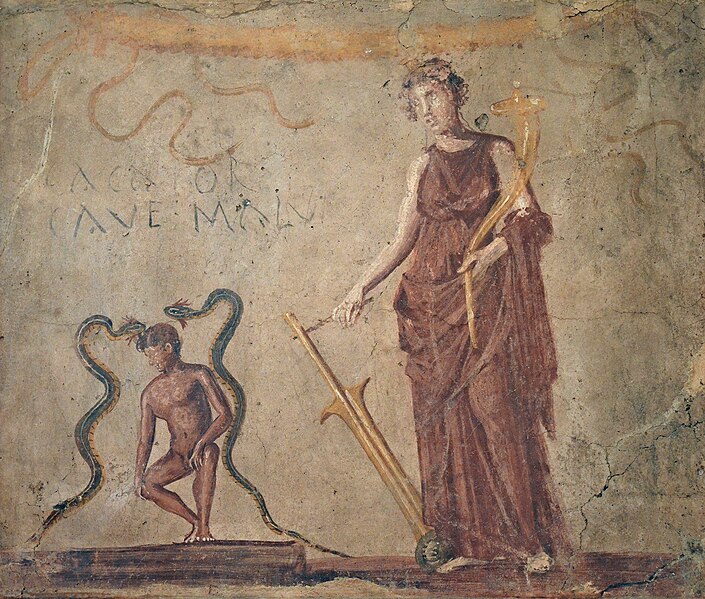
As a Goddess who loved Her people in all situations, Fortuna sometimes found Herself portrayed in less than sacred settings, whenever and wherever people felt they needed a bit of extra luck.
Luck and good fortune manifest in many ways, anytime, anywhere. Sometimes it's unexpected and unrecognized.
Formal inscriptions, temples and altars were also built, as vows to the Goddess Fortuna in gratitude for good luck She was believed to have bestowed.
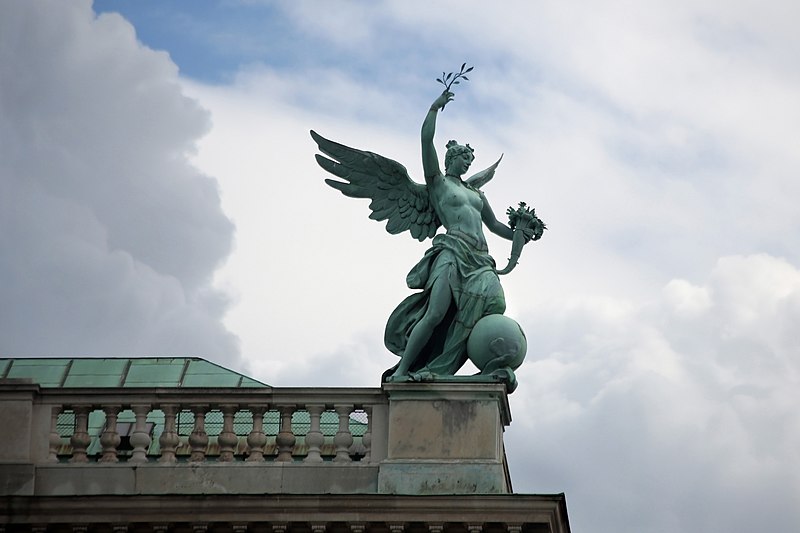
Her worship wasn't limited to the city of Rome, or Italy.
She traveled throughout the ancient Empire, from the Mediterranean to much of Europe, Britannia, the Mid-East and North Africa.
Symbols and Correspondences
Cornucopia, full of fruit (ancient, traditional) or coinsWheel, usually shown with 8 spokes
Globe or sphere
Ship's rudder (ancient)
Offerings
Frankincense
Bergamot (as in a cup of earl grey tea)
Fruit
Flowers
Wine
Summer Solstice Ritual
Background
The day of Fors Fortuna was June 24, around the time of the summer solstice holiday.
According to the poet Ovid, Rome's entire population would gather along the river Tiber, boat owners would put on a parade, their boats decked out with flowers, and all the people would gamble, throw dice, drink and sing drinking songs.
This was in celebration of Servius Tullius, a former slave who became king of Rome through marriage, believed to be the mortal beloved of the Goddess Fortuna, because of this rise from rags to riches.
In Rome, the day of Fors Fortuna was probably one of the most beloved, fun holidays of the year.
All the elements were present:
Voices in song, carried in the air waves
The fire of the sun
Water of the river and in the drinks
Earthly wealth, represented by gambling with dice
For us, in contemporary practice, June 24 is recognized as Fortuna's day.
Preparation
Think of how all four elements will be represented for the day. You may wish to gather up symbols similar to the ancient holiday, contemporary symbols, nature's elements in an outdoor space or, as the folk song says, “air my breath, water my blood, earth my bones and fire my spirit”. You, your sacred space, and your intention are the only things you will really need for this ritual.
This ritual is held during the bright light of day; the time of the summer solstice. You may wear joyful yellow or golden colors, carry a bunch of your favorite flowers, bring a glass and some wine (or juice), and this is optional.
Ritual
Perform your preferred purification, cast the circle and call the directions as usual. Speak the following prayer and meditate on what it means to you. If you have wine on your altar, pour a small offering to the earth, giving thanks for your good fortune of receiving. Raise energy and send your intention. Remember to ground any excess energy before thanking the directions and opening the circle.
Please remember to have some “cakes and ale” after enjoying this ritual!
Prayer for Wealth and Prosperity at the Summer Solstice
Goddess, who brings wealth to the poor and underprivileged,
You know well the financial difficulties that are faced by us daily.
At this magical time of empowering, golden sunlight,
Please bring a golden magical light to our sources of prosperity
So they may be rejuvenated and filled with wealth.
As people we create the economic cycles,
Which we pray will turn to benefit us at this time, and
Those of us who need more than we now have,
Pray for Your divine guidance.
Please forgive any of our actions which may have
Contributed to our current financial situation,
Allow us to become gainfully employed,
Or otherwise receiving our fair share of wealth,
And learn how to work through any interference if it has
Interrupted our cycle of prosperity.
Please send Your Goddess power of financial wealth
On your sacred day at the solstice of summer.
And so it is blessed, favorable, fruitful and fortunate,
Goddess Fors Fortuna!
Blessed be
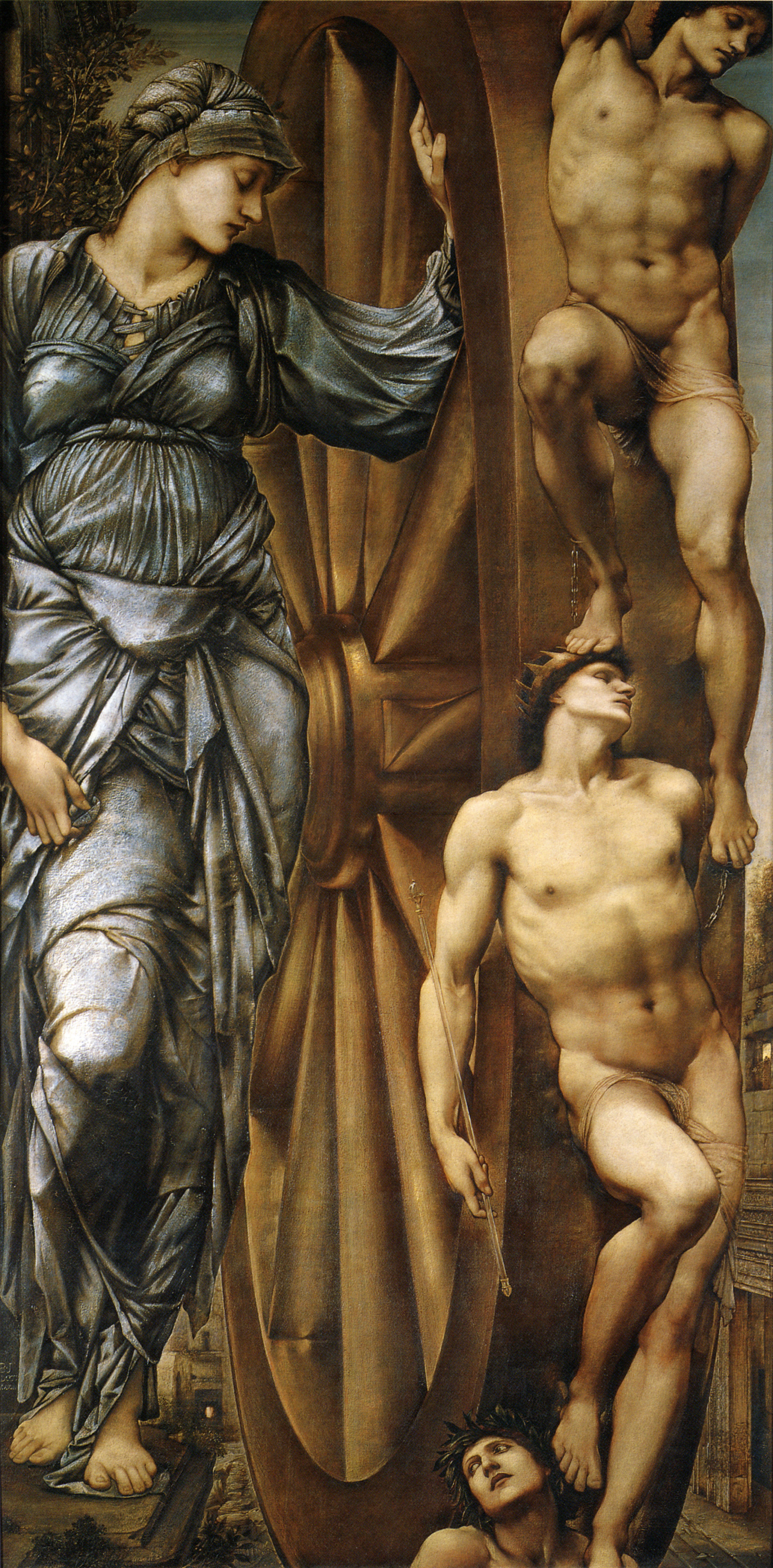
Resources:
"p.s. Fortuna: Prayers and Supplications For the Goddess" by E. Sylvia
Her Story
https://templeoffortuna.com (accessed 9 March 2025)
Borders of the Roman Empire
https://en.wikipedia.org/wiki/Borders_of_the_Roman_Empire (accessed 9 March 2025)
https://www.theoi.com/Text/OrphicHymns2.html#71 (accessed 9 March 2025)
“Fors Fortuna, Roman Goddess of Fortune and Fate”
http://thaliatook.com/OGOD/fors.php (accessed 9 March 2025)
“Ovid: Fasti, Book VI: June 24”
https://www.poetryintranslation.com/PITBR/Latin/OvidFastiBkSix.php#BkVIJune24 (accessed 9 March 2025)
“Servius Tullius”
https://en.wikipedia.org/wiki/Servius_Tullius (accessed 9 March 2025)
Images:
“Fortuna“, Painting by Henri Gascar, 1670s, Public domain work of art
https://commons.wikimedia.org/wiki/File:Henri_Gascar_-_Fortuna.jpg (accessed 9 March 2025)
Goddess Fortuna holding a cornucopia, Temple model, 2nd-3rd century CE, Photograph by Osama Shukir Muhammed Amin FRCP(Glasg), Creative Commons Attribution-Share Alike 4.0 International license.
https://commons.wikimedia.org/wiki/File:Temple_model_with_goddesses._Goddess_Fortuna_holding_a_cornucopia._2nd-3rd_century_CE._From_Hatra,_Iraq._Iraq_Museum.jpg (accessed 9 March 2025)
Isis Fortuna with Grafitti ”Cacator cave malum (Shitter beware the evil eye)”, Lararium wall painting from a corridor leading to a latrine, Naples Archaeological Museum, Photograph by Carole Raddato Creative Commons Attribution-Share Alike 2.0 Generic license
“Goddess Fortuna”, Statue by Johannes Benk, Photograph by Manfred Werner, Creative Commons Attribution-Share Alike 3.0 Unported license.
https://commons.wikimedia.org/wiki/File:Fortuna_von_Johannes_Benk_(1896)_Neue_Burg_Wien_2013.jpg (accessed 9 March 2025)
“Fortuna, Goddess of Fortune”, 1889 print by William S. Kimball & Company, Creative Commons CC0 1.0 Universal Public Domain Dedication.
https://commons.wikimedia.org/wiki/File:Fortuna,_Goddess_of_Fortune,_from_the_Goddesses_of_the_Greeks_and_Romans_series_(N188)_issued_by_Wm._S._Kimball_%26_Co._MET_DPB871034.jpg (
accessed 9 March 2025)
Rosa 'Lady Luck';
Hybridized by A. J. Miller, 1956, Photograph by 掬茶 , Creative Commons Attribution-Share Alike 4.0 International license.
https://commons.wikimedia.org/wiki/File:Rosa_%27Lady_Luck%27_at_Ishida_Rose_Garden_in_Odate,_Akita,_Japan.jpg (accessed 9 March 2025)
“La Roue de la Fortune (The Wheel of Fortune)”, Painting by Edward Burne-Jones, between 1875 and 1883 , Public domain work of art
https://commons.wikimedia.org/wiki/File:Edward_Burne-Jones_-_La_ruota_della_fortuna,_1875-83.jpg (accessed 9 March 2025)
Prayer:
"p.s. Fortuna: Prayers and Supplications For the Goddess" by E. Sylvia
This page is the intellectual and creative property of E. Sylvia
Copyright 2025